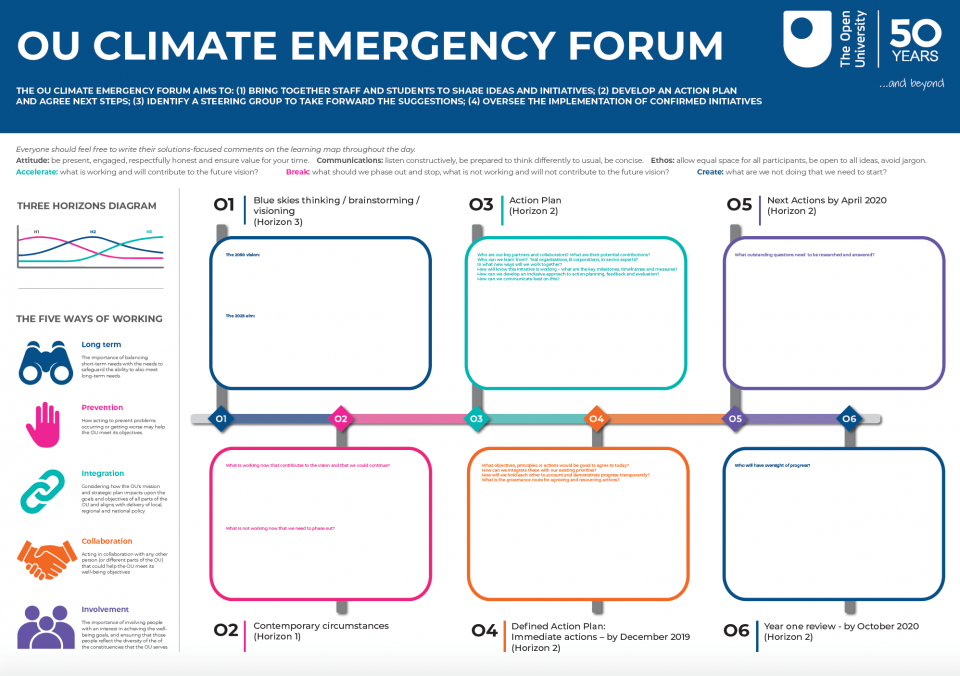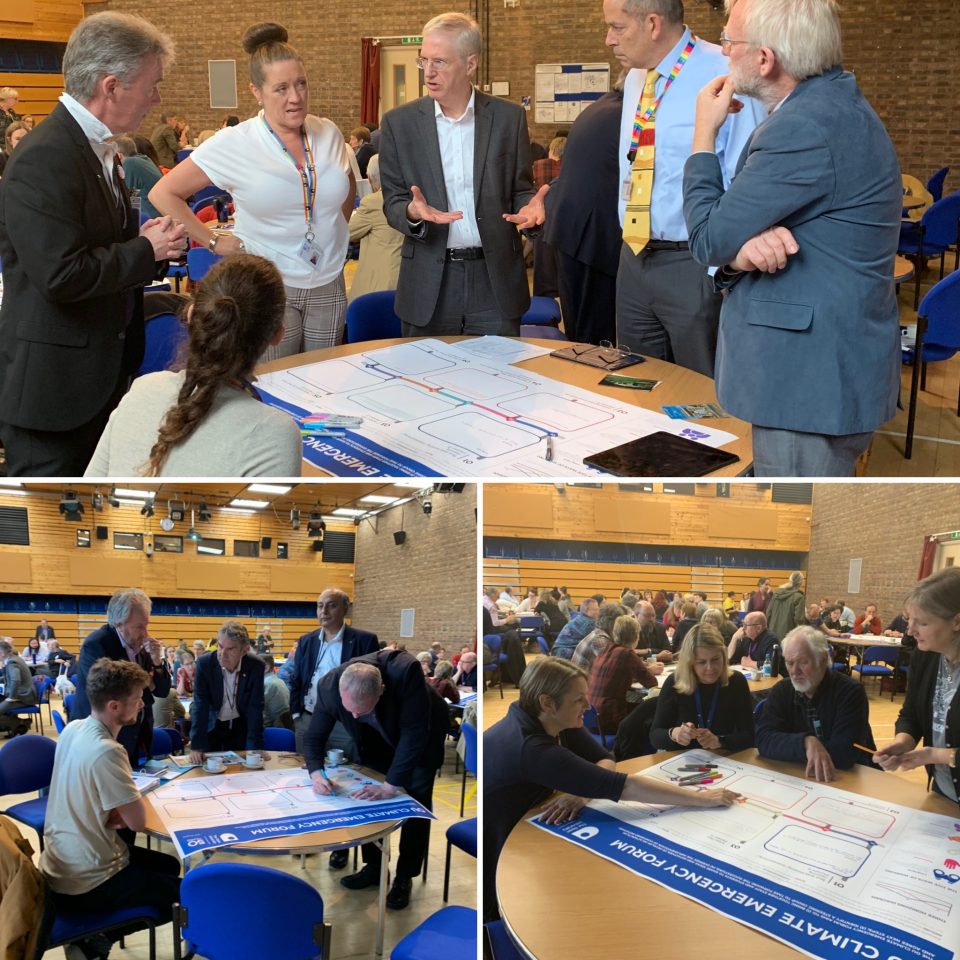The Open University held the first Climate Emergency Forum (CEF) which was attended by a wide range of stakeholders. The CEF had these respectable aims –
- bring together staff and students to share initiatives
- develop an action plan and agree next steps
- identify a steering group to take forward the suggestions
- oversee the implementation of any agreed initiatives.
The workshop process was designed a core activity called the learning may which looked at five ways of working across three key horizons using a simple six step process – this was primarily led by the design group’s Stephen Peake. The key activity produced a lot of discussion and animation in the various mixed groups. It was particularly telling that nearly every Faculty Executive Dean was present – and deeply engaged. I felt I learned a lot from our colleagues who in Estates who have taken the challenge of Zero Waste on campus to a new level!

From the group I was working with there was, perhaps not surprisingly, a lot of discussion about travel related impacts from both OU staff commuting as well as conference related travel. Some of the differences of opinion stemmed from the fact that we don’t currently have a very good data set for our current baseline of all travel which ought to include Scope 2 emissions, and possibly even Scope 3 https://www.carbontrust.com/resources/faqs/services/scope-3-indirect-carbon-emissions/ . Clearly we need to sit down and do some surveys and crunch the numbers!
Nevertheless I think this first session of the CEF was very worthwhile – I think the passion (and seriousness) shown on the Vice Chancellor’s face – and his wider team – shows that The University is taking committed steps to carbon reduction. Tim Blackman is shown in the middle (gesturing) with attentive audience – including (left to right) Professor Ian Williams (University of Southampton), Lisa Little (OU), Tim Blackman, Professor Guy Orpen (University of Bristol) and Professor Nick Braithwaite (OU, STEM).

The sponsors and hosts for this session were very attuned to the various stakeholders present, and all the speakers really were excellent. Above you can see various participants completing the actions within various timelines demonstrating the good use of the learning mat. The only criticism here would be that some teams felt they could have spent 1-2 days doing all the activities, or just focussing deeply on one block in the mat. The workshop generated a very large number of suggestions and as the results from points 2 and 3 become clearer I hope to update readers and share them here with a wider audience. Please do stay tuned to see if the blue of OU turns even greener in the coming months.

Leave a Reply